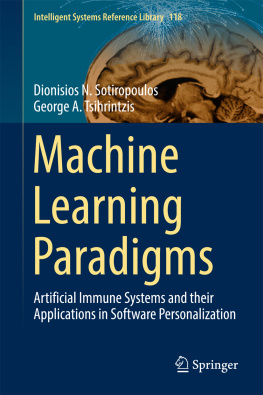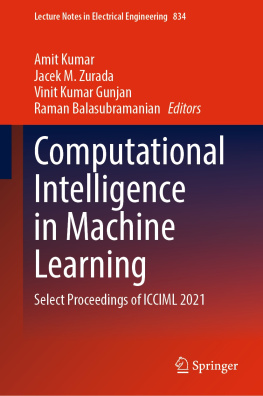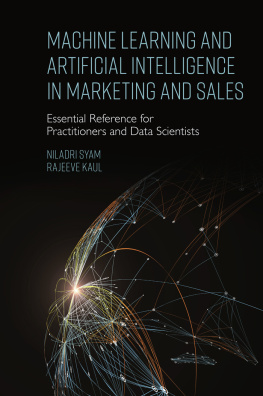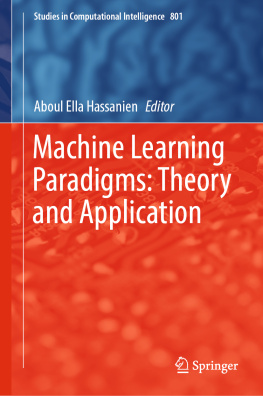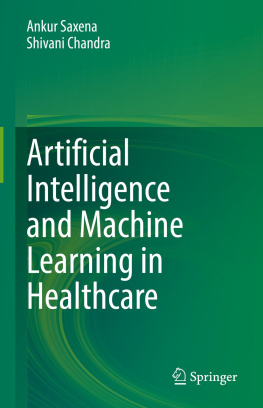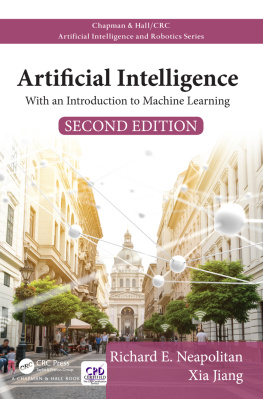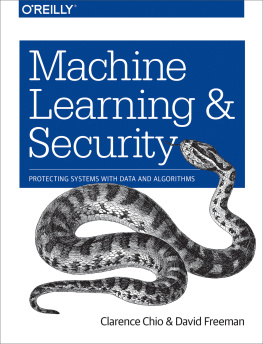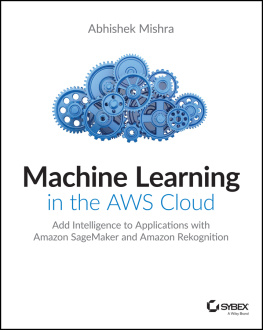1. Introduction
Abstract
In this chapter, we introduce the reader to the scope and content of the book which is a research monograph on the artificial immune system paradigm of machine learning. The book topic falls within the, so-called, biologically motivated computing paradigm, in which biology provides the source of models and inspiration towards the development of computational intelligence and machine learning systems. Specifically, artificial immune systems are presented as a valid metaphor towards the creation of abstract and high level representations of biological components or functions. We summarize the book and outline each subsequent chapter.
One of the primary characteristics of humans is their persistence in observing the natural world in order to devise theories about how the many parts of nature behave. Newtons laws of physics and Keplers model of planetary orbits constitute two major examples of human nature which for many years now tries to unravel the basic underpinning behind the observed phenomena. The world, however, need not just be observed and explained, but also utilized as inspiration for the design and construction of artifacts, based on the simple principle stating that nature has been doing a remarkable job for millions of years. Moreover, recent developments in computer science, engineering and technology have been determinately influential in obtaining a deeper understanding of the world and particularly biological systems. Specifically, biological processes and functions have been explained on the basis of constructing models and performing simulations of such natural systems. The reciprocal statement is also true, meaning that the introduction of ideas stemmed from the study of biology, have also been beneficial for a wide range of applications in computing and engineering. This can be exemplified by artificial neural networks, evolutionary algorithms, artificial life and cellular automata. This inspiration from nature is a major motivation for the development of artificial immune systems.
In this context, a new field of research emerged under the name of bioinformatics referring to principles and methodologies of information technology (i.e. computational methods) applied to the management and analysis of biological data. Its implications cover a diverse range of areas from computational intelligence and robotics to genome analysis []. Therefore, the subject of biomedical engineering is intimately related to bioinformatics.
The bilateral interaction between computing and biology can be mainly identified within the following approaches:
biologically motivated computing , where biology provides sources of models and inspiration in order to develop computational systems (e.g. Artificial Immune Systems),
computationally motivated biology where computing is utilized in order to derive models and inspiration for biology (Cellular Automata) and
computing with biological mechanisms , which involves the use of the information processing capabilities of biological systems to replace, or at least supplement,current silicon based computers (e.g. Quantum and DNA computing).
This monograph, however, is explicitly focused on biologically motivated computing within the field of Artificial Immune Systems. In other words, the research presented here does not involve the computational assistance of biology through the construction of models that represent or reproduce biological functionalities of primary interest. On the contrary, the main purpose of this monograph is to utilize biology, and immunology in particular, as a valid metaphor in order to create abstract and high level representations of biological components or functions. A metaphor uses inspiration in order to render a particular set of ideas and beliefs in such a way that they can be applied to an area different from the one in which they were initially conceived. Paton [] identified four properties of biological systems important for the development of metaphors:
architecture , which refers to the form or the structure of the system,
functionality , which corresponds to its behavior,
mechanisms , which characterize the cooperation and interactions of the various parts, and
organization , which refers to the ways the activities of the system are expressed in the dynamics of the whole.
The primary contribution of this monograph lies within the field of Pattern Recognition, providing experimental justifications concerning the validity of Artificial Immune Systems as an alternative machine learning paradigm. The main source of inspiration stems from the fact that the Adaptive Immune System constitutes one of the most sophisticated biological systems that is particularly evolved in order to continuously address an extremely unbalanced pattern classification problem by performing a self/non-self discrimination process. The main effort undertaken in this monograph is focused on addressing the primary problems of Pattern Recognition by developing Artificial Immune System-based machine learning algorithms. Therefore, the relevant research is particularly interested in providing alternative machine learning approaches for the problems of Clustering , Classification and One-Class Classification and measuring their efficiency against state of the art pattern recognition paradigms such as Support Vector Machines. Pattern classification is specifically studied within the context of the Class Imbalance Problem which arises with extremely skewed training data sets. Specifically, the experimental results presented in this book involve degenerate binary classification problems where the class of interest to be recognized is known only through a limited number of positive training instances. In other words, the target class occupies only a negligible volume of the entire pattern space while the complementary space of negative patterns remains completely unknown during the training process. The effect of the Class Imbalance Problem on the performance of the utilized Artificial Immune System-based classification algorithm constitutes one of the secondary objectives of this monograph.
The general experimentation framework adopted throughout the book in order to assess the efficiency of the proposed clustering, classification and one-class classification algorithms was a publicly-available collection of one thousand (1000) pieces from 10 different classes of western music. This collection, in particular, has been extensively used in applications concerning music information retrieval and music genre classification [].
The following list summarizes the pattern recognition problems addressed in the current monograph through the application of specifically designed Artificial Immune System-based machine learning algorithms:
Artificial Immune System-Based music piece clustering and Database Organization [].
Artificial Immune System-Based Customer Data Clustering in an e-Shopping application [].
Artificial Immune System-Based Music Genre Classification [].
A Music Recommender Based on Artificial Immune Systems [].
The book is structured in the following way:

